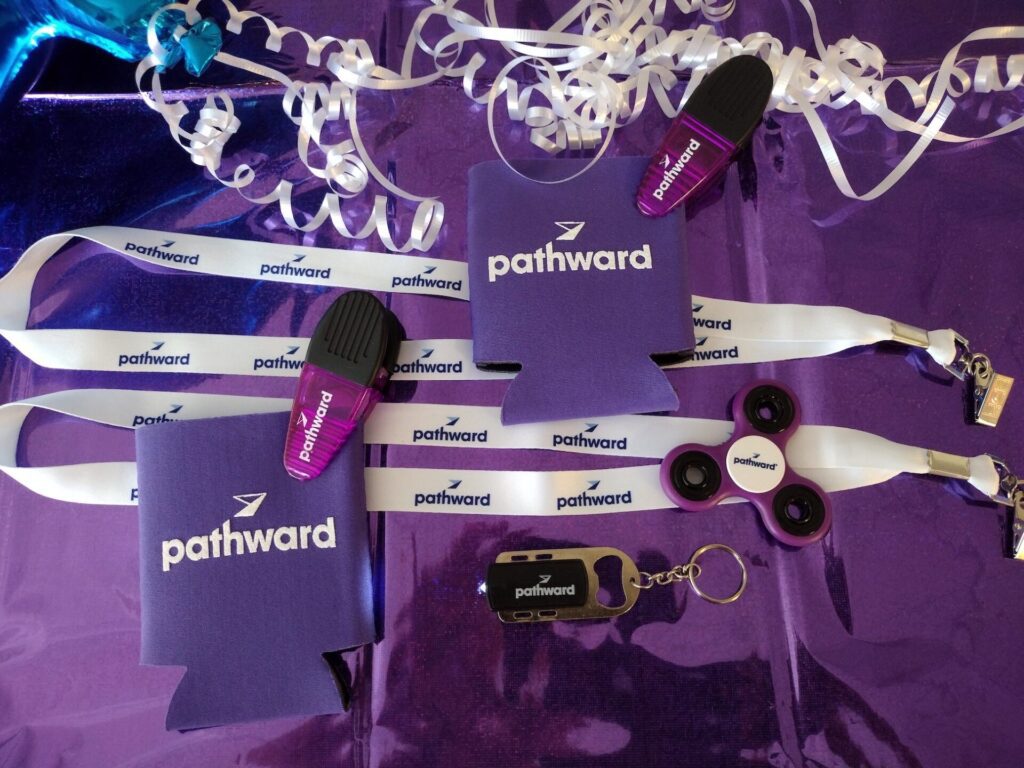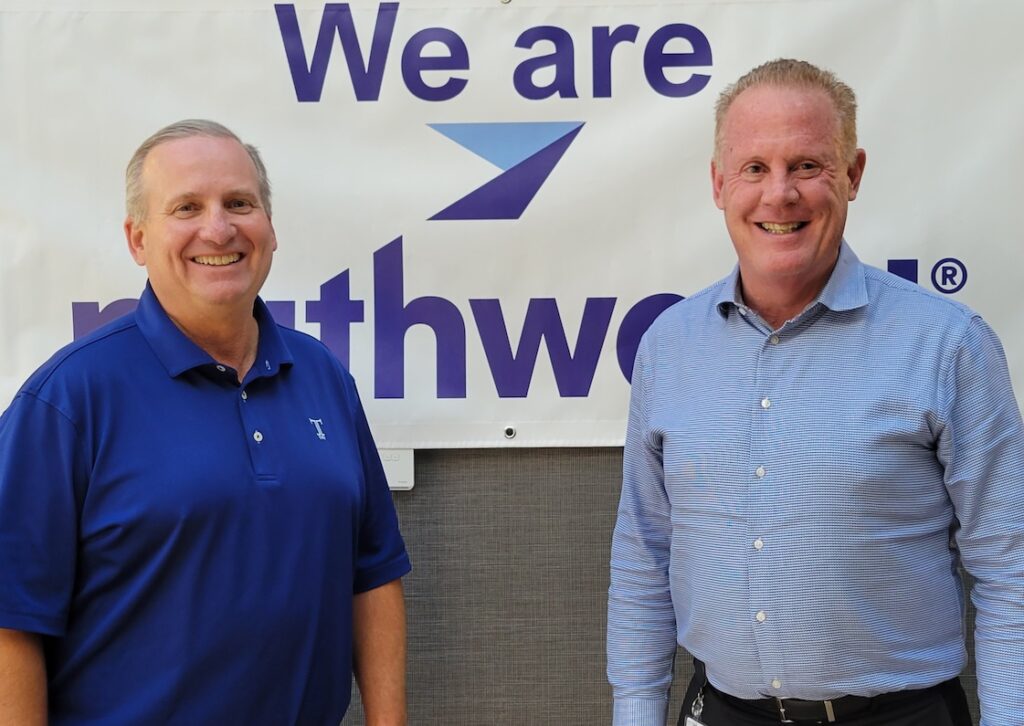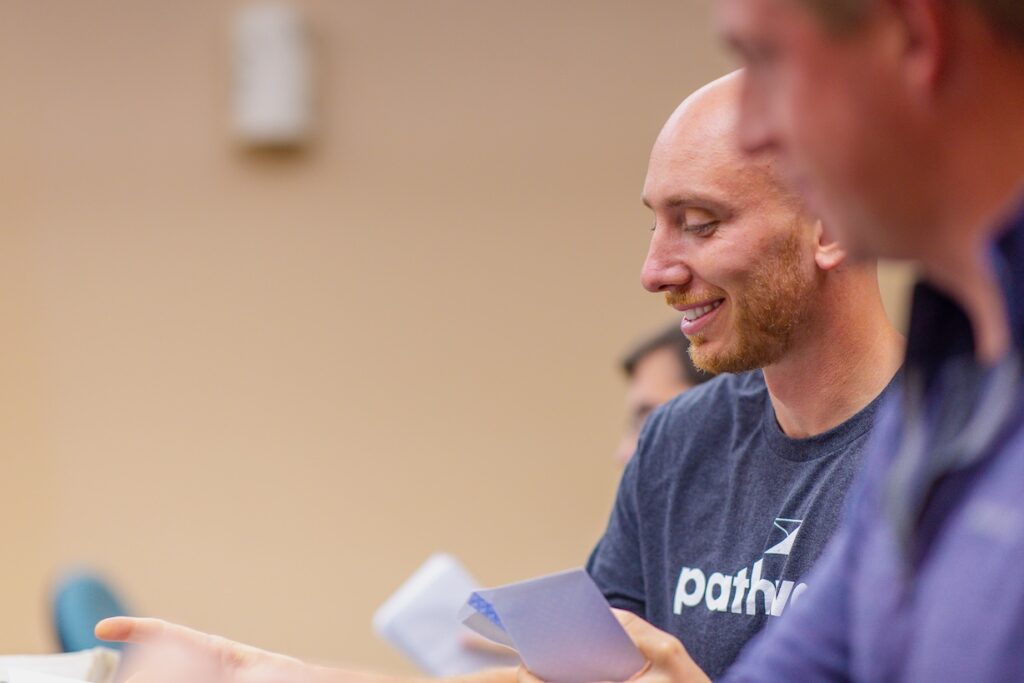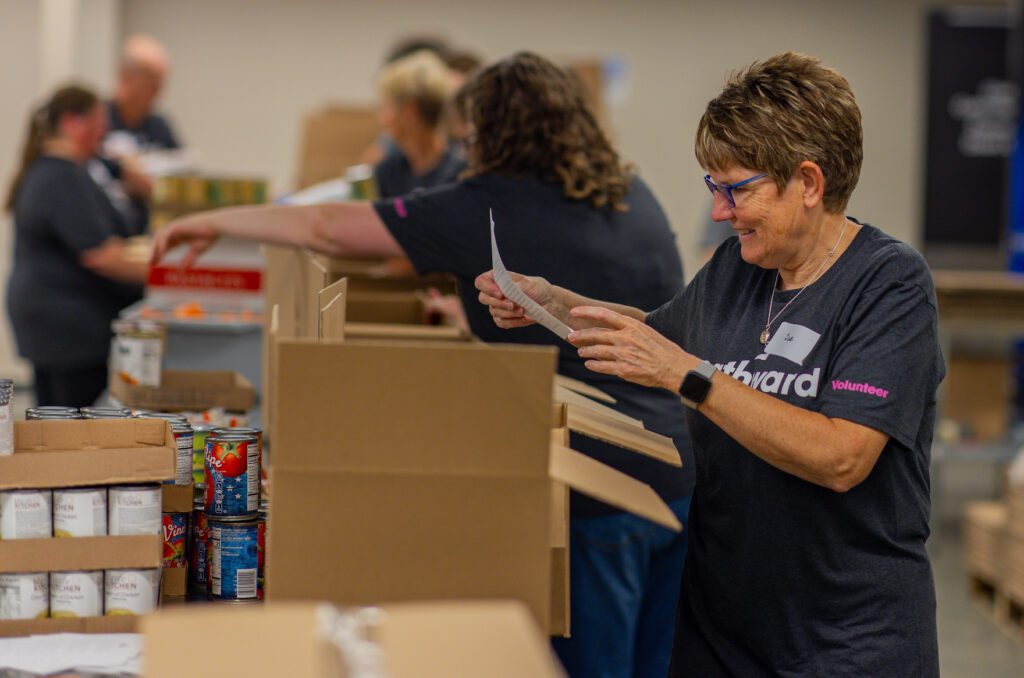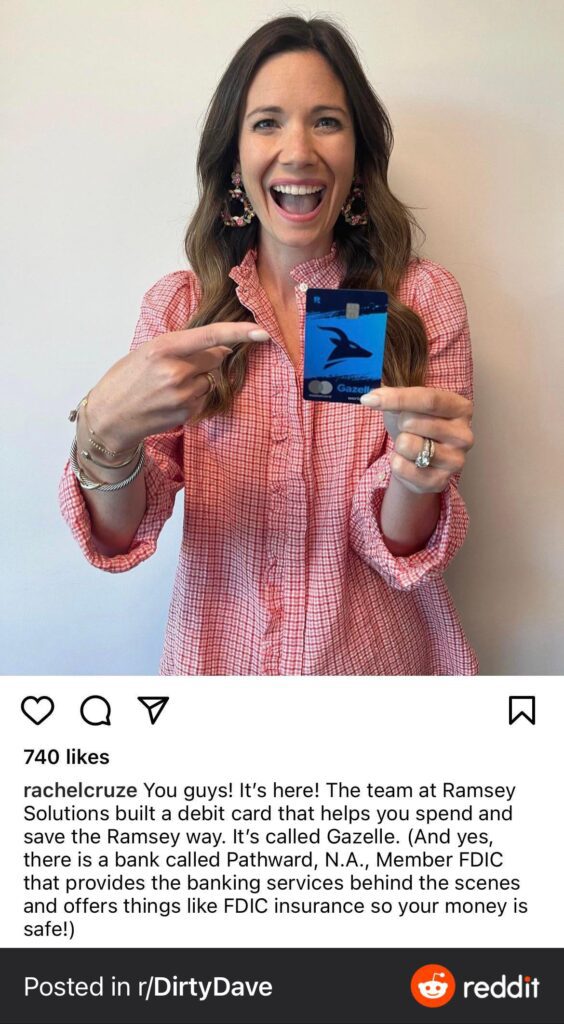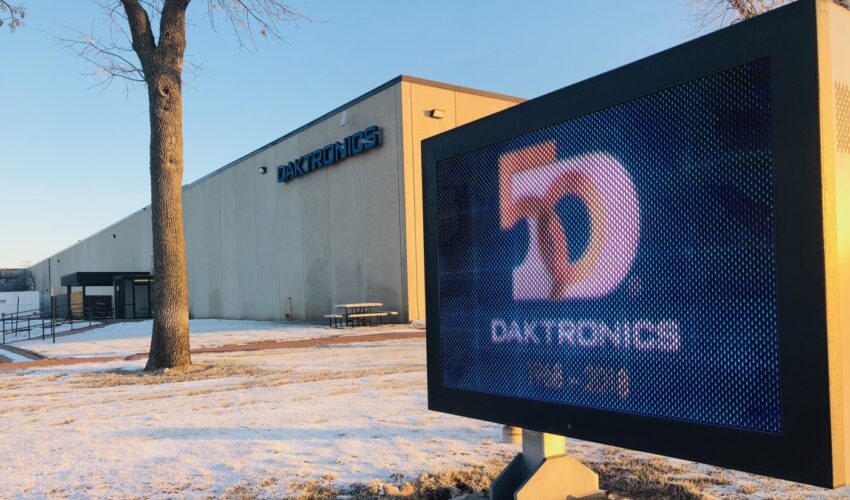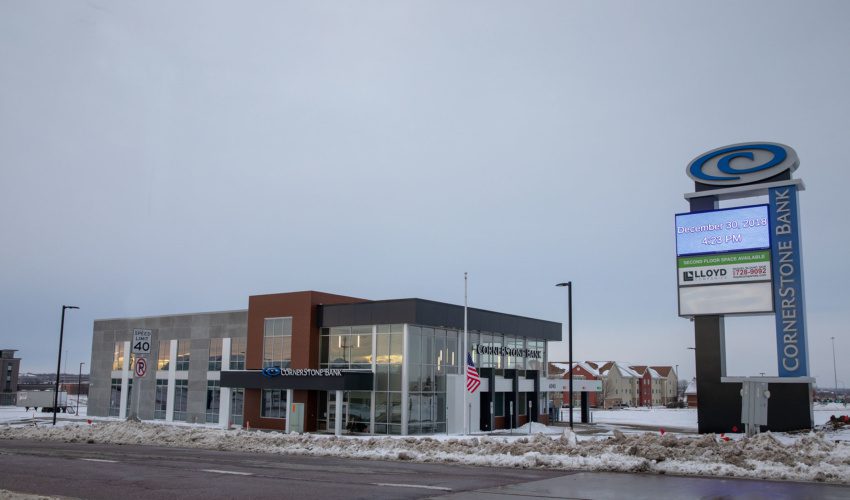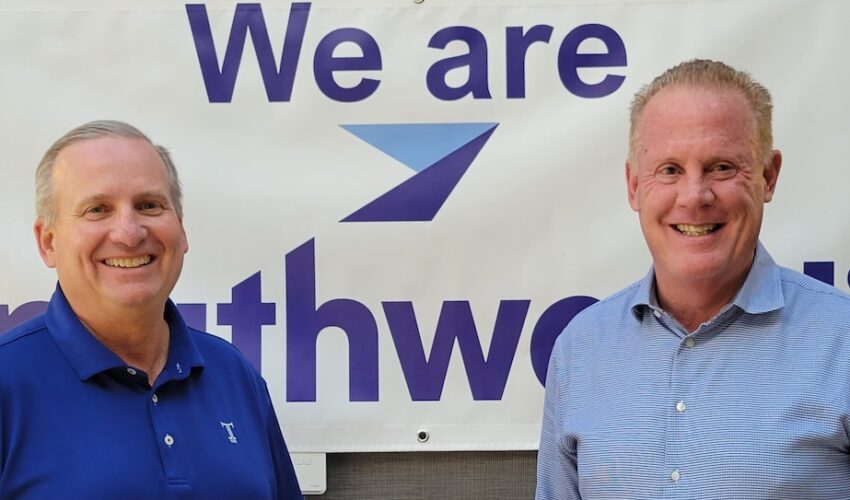Newly rebranded Pathward looks ‘onward and upward’ following landmark year
Oct. 31, 2022
Facebook’s announced name change was just hours old when it landed in Jimmy Fallon’s monologue on “The Tonight Show.”
“Meta. Yeah. Meta,” Fallon said, eyebrows raised. “As in ‘When I joined Facebook, I ‘met a’ lot of crazy people.”
Until then, the name Meta had belonged to Sioux Falls-based Meta Financial Group – a fintech company, far from a social network and even farther from appearing on a national late-night show.
“My phone was blowing up,” said Brett Pharr, who became CEO of then-Meta Financial about a year ago. “It was hilarious.”
It was also lucrative. The Sioux Falls-based company received $60 million for the trademark assets, which was used in part for its rebrand.
The new name, Pathward Financial Inc., was announced earlier this year, and the full rebrand was released earlier this month.
It “starts getting to our purpose, which is financial inclusion for all and helping make sure everyone can be connected to the financial network of the country, so they have a chance to have the American dream as well,” Pharr said. “If you don’t have financial access, you’re excluded from a lot of opportunities.”
There’s no using a real word in the name – “they’re all taken” – he explained, “so you have to make up words. The concept of a path forward for people resonated with us, and the logo has the idea of onward and upward.”
For Pathward, as a company, the concept of “onward and upward” seems to apply too.
The company recently reported net income of $156.4 million, or $5.26 per share, for the fiscal year that ended Sept. 30, compared with net income of $141.7 million, or $4.38 per share, for the previous fiscal year. That reflects an average return on assets of 2.2 percent, compared with 1.74 percent for the previous fiscal year.
Pharr called it a “landmark year” of unifying the company under a single brand.
“It has become a purpose for us to help the financially excluded, and that’s true in our payments business but also the kind of commercial finance we do are the kind of people excluded from traditional business financing as well,” he said. “I think it’s helped us in hiring. It helps us in people understanding our social conscious element but at the same time being someone that rewards shareholders.”
While the name has changed, the company itself has evolved from the Meta that was named one of Fortune magazine’s 100 fastest-growing companies in 2017.
At the time, Meta peaked around 700 employees in Sioux Falls, among 800 companywide. Less than five years and multiple acquisitions later, Pathward is an 1,100-person company with about 400 in Sioux Falls. That also reflects subtracting employees who supported the community bank side of the business, which is now part of Iowa-based Central Bank.
Pharr, who is based in Nashville, estimates he’s in Sioux Falls six to eight times a year. In addition to Nashville, there are large offices in a suburb of Detroit, where the company’s commercial finance operation is located, as well as Scottsdale, Arizona, and Dallas.
Glen Herrick and Brett Pharr
The Sioux Falls team, which is concentrated in one building of the company campus, includes “a lot of professional jobs,” Pharr said. “Risk and compliance, accounting, finance and a lot of technology. The ‘move money’ engines we have are here, and a heavy tech presence and some of the payment operations are here as well. This is our prepaid card, debit card operations, and accounting and finance.”
The pandemic has led the company to embrace more remote workers – there were some before – especially for hard-to-fill roles such as software developers. There now are employees working from 39 states.
“We still have over 50 open positions, and while a number of those could be remote, our preference is to try and hire around one of clusters,” said Glen Herrick, the company’s Sioux Falls-based executive vice president and CFO.
“Sioux Falls is a spot we’d love to add talent in.”
Most Pathward offices include “hoteling spaces” and flexibility to work remote.
“We have been particularly successful in various ways of doing collaboration remotely,” Pharr said. “That being said, culture and getting people together intentionally for business purposes at our sites is going to be an increasing emphasis for us.”
Herrick estimates there are 60 to 80 people in the Sioux Falls office on any given day, though 170 signed up for a recent company volunteer day.
“We had so many sign up we had to find five additional nonprofits to volunteer for,” he said.
Pathward’s growth is coming from multiple directions. On the consumer payments side, it still operates in a business-to-business to consumer model, “and the reason is because there are so many unique niches there that are underserved, third parties are better able to give them a customized solution,” Pharr said. “We provide the safety and soundness from the background, we work with them in collaboration to help people’s needs … but we do very little direct-to-consumer business.”
The company also supports refund advance loans for those filing taxes through H&R Block as well as 25,000 independent tax offices nationwide.
“They face the customer, and we’re the bank engine behind it,” Pharr said.
The company’s overall banking-as-a-service business, which includes payment, issuing, credit and tax solutions, ranks among the industry’s top two players, along with Sioux Falls-based The Bancorp, “and we’ve got good business models, but there’s a lot of change happening and different ways to move money,” Pharr said. “Gaming, digital wallets, and we’re playing in all that, so I think we’re all in a ‘let’s all kind of figure it out’ phase.”
Last week, for example, Ramsey Solutions released its new debit card called Gazelle “that helps you spend and save the (Dave) Ramsey way.” It recognized Pathward as providing the banking services “behind the scenes” with FDIC insurance “so your money is safe.”
Pathward’s commercial finance side caters to companies that are losing money or have had a catastrophic event impact their margin that precludes them from accessing more traditional bank financing. It’s “heavy collateral-managed lending, and we know how to do that even to companies on the brink of loss but not lose money doing it,” Pharr said. “It gives them an opportunity to recover and get back to their former glory, or in some cases it’s a startup to help them get going. Some of them fail, and we liquidate them, but we don’t lose money liquidating.”
It’s an approach that could serve the company well as economic conditions create a more challenging traditional lending environment, he said.
“If you’re in traditional commercial (lending) and most loans are unsecured, when there’s a downturn you take losses,” Pharr said. “Every loan we make we assume the company is going to fail tomorrow, and we structure it accordingly. We’re built for bad times. So we’ll have more companies coming to us during a down economy. That hasn’t started yet, and I don’t wish it on anybody, but we’re here to help out.”
Meanwhile, although the rebrand might be complete, hearing the old company name on national news still is enough to cause a double take.
“Every time,” Herrick said. “I watch Bloomberg, and every time I hear Meta, my head will snap. And then I realize, ‘Oh, that’s not us.’”

